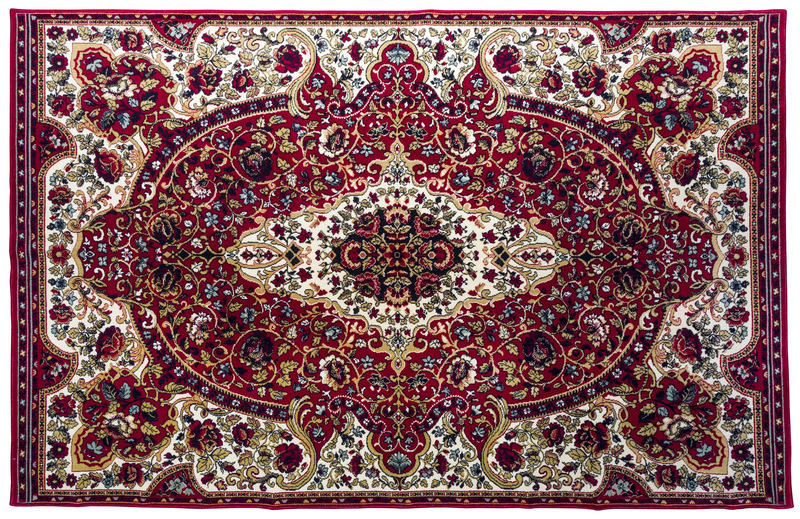Essential Jewellery Cleaning Methods Uncovered
Posted on 27/08/2025
Essential Jewellery Cleaning Methods Uncovered
Jewellery is more than just a decorative accessory; it is a reflection of personal style, sentiment, and sometimes, family heritage. Whether it's a sparkling diamond ring, a classic gold chain, or a cherished heirloom, your trinkets deserve regular care to keep their luster and beauty intact. In this comprehensive guide, we will unveil the essential jewellery cleaning methods that you can utilize to maintain your precious treasures, ensuring their shine and longevity for generations to come.

Why Clean Your Jewellery?
Over time, jewellery can accumulate dirt, oils, lotions, and even bacteria. Exposure to everyday elements can make even the finest gemstones and precious metals lose their original sparkle. Proper jewellery cleaning not only enhances appearance but also prolongs life, prevents tarnish, and maintains the integrity of the setting.
- Prevention of tarnish and corrosion
- Avoiding buildup of grime, dust, and bacteria
- Detecting loose stones or potential repairs early
- Preserving sentimental and monetary value
Let's uncover the core jewellery cleaning methods that experts recommend for various types of jewels.
Understanding Your Jewellery's Composition
Before embarking on any cleaning routine, it's paramount to understand the materials and construction of your jewellery. Some gemstones are softer or more porous, while certain settings may be delicate. Using the wrong cleaning method can cause irreversible damage.
Common Materials and Their Characteristics
- Gold - Durable, but can scratch easily; avoid harsh chemicals.
- Silver - Prone to tarnishing; needs regular polishing.
- Platinum - Strong and resists tarnish but benefits from gentle cleaning.
- Diamonds - Tough but attract oils; shine is best restored by thorough but safe cleaning.
- Pearls - Delicate and organic; avoid synthetic cleaners and excessive moisture.
- Coloured Gemstones - Each one may require specific care; check for treatments or coatings.
The Best Jewellery Cleaning Methods Explained
1. Professional Jewellery Cleaning
When in doubt or dealing with high-value pieces, a visit to a professional jeweller is always advisable. Professional jewellery cleaning uses ultrasonic cleaners, steam, and expert hands to revive brilliance and inspect your setting for wear and tear.
- Safe for intricate settings and fragile gems
- Detects hidden issues like loose prongs or cracks
- Recommended at least annually for major pieces
Bonus tip: Many reputable jewellers offer complimentary cleaning and inspection if you purchased the item from them.
2. At-Home Jewellery Cleaning Techniques
Not every sparkle emergency requires a trip to the jeweller. Here are some essential jewellery cleaning techniques you can safely do at home.
Soap and Warm Water
For most materials, this is the gentlest and most effective method:
- Mix a small amount of mild, non-abrasive dish soap with warm water.
- Soak the jewellery for 5-10 minutes.
- Gently brush with a soft-bristled toothbrush, especially behind stones where grime hides.
- Rinse thoroughly with clean water and pat dry with a soft lint-free cloth.
Perfect for: Gold, platinum, diamonds, sapphires, rubies, and most precious metals.
Baking Soda and Water Paste
Baking soda is an excellent cleaning and polishing agent especially for silver:
- Create a paste of baking soda and water.
- Apply gently with a soft cloth or brush.
- Rinse off thoroughly and buff with a soft cloth.
Important: Avoid using this method on soft or porous gemstones like opals and pearls.
Commercial Jewellery Cleaners
Several over-the-counter jewellery cleaners are formulated for specific metals and gems. Always read the label and instructions before use.
- Dip jewellery briefly, as directed.
- Rinse and dry thoroughly to avoid residue.
Caution: Strong chemicals may damage certain stones and coatings--use sparingly and only as needed.
Ammonia Solution (with Caution)
An ammonia solution can be effective for diamonds but should never be used with gold or porous stones.
- Mix six parts water to one part ammonia.
- Soak jewellery very briefly (no more than a minute).
- Rinse and dry thoroughly immediately after removal.
Pro Tip: Never use ammonia with pearls, turquoise, onyx, or other soft stones.
3. Ultrasonic Jewellery Cleaners
Ultrasonic cleaners are increasingly popular for at-home use. They work by vibrating dirt and grime free from jewellery in a cleaning solution. However, exercise caution:
- Safe for: Solid gold, platinum, and diamonds.
- Not safe for: Pearls, emeralds, opals, tanzanites, and other soft or treated stones.
Always read the manufacturer instructions and consider the composition of your jewellery.
Specialized Cleaning Methods for Specific Jewellery
How to Clean Gold Jewellery
- Use mild soap and warm water. Strong detergents can strip away gold's surface.
- Avoid abrasive materials that can scratch the soft gold surface.
- Polish with a designated gold polishing cloth for a final shine.
How to Clean Silver Jewellery
- Baking soda and water paste works well but rinse thoroughly after use.
- Store silver in anti-tarnish bags and away from light and humidity.
- Use a silver polishing cloth or commercial silver cleaner for tarnished pieces.
How to Clean Diamond Jewellery
- Soak in warm soapy water and gently brush to dislodge dirt.
- Avoid touching the diamond with your fingers to prevent oil buildup.
- Store separately to avoid scratches against other pieces.
How to Clean Pearl Jewellery
- Never soak pearls in water or chemicals.
- Wipe gently with a damp cloth after each wear.
- Store pearls flat and away from heat and chemicals.
- Restring pearls every few years to maintain strength and cleanliness.
Caring for Coloured Gemstones
- Research specific care for each stone; many are sensitive to chemicals and temperature changes.
- Wipe gently after wearing and store in individual pouches.
- Avoid ultrasonic cleaners for treated or soft gemstones.
Preventative Care: Keeping Your Jewellery Cleaner for Longer
Regular maintenance is the easiest way to avoid heavy duty cleaning sessions. Here's how:
- Put jewellery on last. Perfumes, lotions, and makeup can damage and dull surfaces.
- Avoid wearing jewellery during chores, exercise, or swimming. Chlorine and sweat are enemies of both metals and gems.
- Regularly wipe down after wear. This removes oils and fingerprints before they accumulate.
- Store pieces separately. Prevent scratches and tangles by using soft pouches or jewellery boxes with compartments.
Common Jewellery Cleaning Mistakes to Avoid
- Using toothpaste as a cleaner - It is abrasive and can scratch stones and metal.
- Household bleach and harsh chemicals - Serious damage can occur, especially to gold and gemstones.
- Soaking pearls or soft gems - Water can dissolve or weaken strings and natural materials.
- Forgetting to check for loose stones or settings - Cleaning could dislodge an already unstable stone.
- Over-cleaning or polishing - This can wear away plating or delicate settings.
Creating a Jewellery Cleaning Schedule
- Everyday pieces: Clean weekly or biweekly
- Special occasion pieces: Clean after each wear
- Heirlooms: Schedule professional cleaning and checkups annually
- Pearls and soft stones: Clean only when necessary, using gentle wipes
Eco-Friendly Jewellery Cleaning Solutions
If you prefer natural jewellery cleaning methods, consider these green options:
- Baking soda and vinegar for silver: Soak the piece in a mixture of baking soda and white vinegar for gentle tarnish removal.
- Castile soap: Plant-based and mild, great for all metals.
- Lemon juice and olive oil: Excellent polish for gold; mix and apply lightly, wipe away residue.
- Microfiber cloths: Reduce the need for chemical cleaners and are safe for everyday wiping.
Storing Your Jewellery After Cleaning
- Always ensure pieces are completely dry before storage to prevent tarnish and mildew.
- Use designated jewellery boxes with soft lining or individual pouches.
- Store in a cool, dry place away from direct sunlight and humidity.
- Consider anti-tarnish strips for silver.

When to Seek Professional Jewellery Cleaning and Repair
- If you notice loose stones, snapped chains, or damaged clasps, do not attempt DIY repair. Professional jewellers have the skills and tools to restore and secure your valuables without further risk.
- Vintage or antique jewellery: Always consult an expert before cleaning, as unique settings and stones require specialized care.
- Regular checkups: A professional cleaning session can also be an opportunity to assess the overall health of your collection.
In Summary: Your Ultimate Guide to Essential Jewellery Cleaning Uncovered
Uncovering the right way to clean your jewellery is just as important as choosing it. By combining professional advice with at-home techniques, you can protect your investment, sentiment, and style--ensuring your treasures gleam brilliantly today and for years to come. Remember to tailor your approach based on materials, usage, and age of each piece.
Frequently Asked Questions About Jewellery Cleaning
-
Can I clean all types of jewellery at home?
Most gold, diamond, and platinum pieces can be cleaned at home with gentle methods, but delicate stones, pearls, and valuable antiques should be handled professionally. -
What household items can safely clean silver jewellery?
Baking soda mixed with water, and a soft microfiber cloth work wonders for most silver. -
Is ultrasonic cleaning safe for all jewellery?
No. Pearls, emeralds, opals, and treated stones should never go in ultrasonic cleaners. -
How should I store my jewellery after cleaning?
In soft-lined boxes or individual pouches, in a cool, dry place to prevent scratches and tarnish.
Share your own jewellery cleaning tricks in the comments and keep your gems gleaming with confidence!
Latest Posts
Effective Techniques for Washing Velvet Curtains and Maintaining Their Charm
Your Guide to Pristine Curtains
Step-by-Step End of Tenancy Cleaning Tips Every Tenant Should Know
How Superior Air Quality Boosts Productivity and Well-being
Sweep Away Grease: Discover Simple Enamel Oven Tray Cleaning



